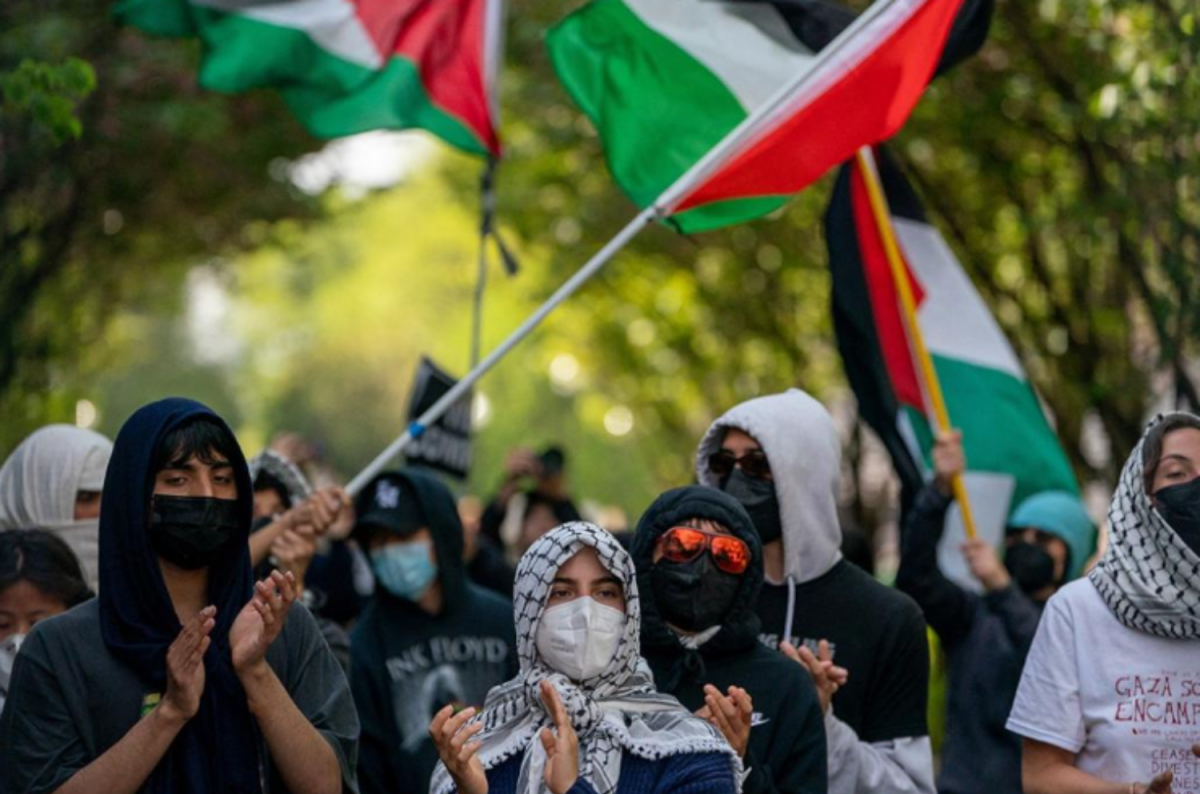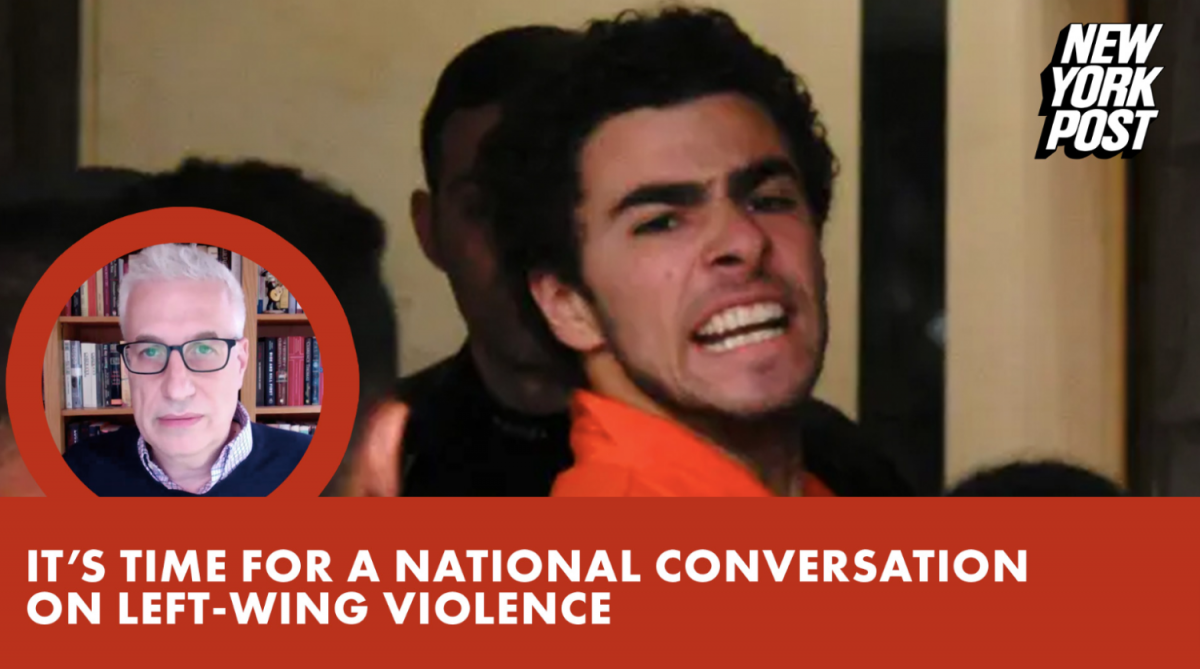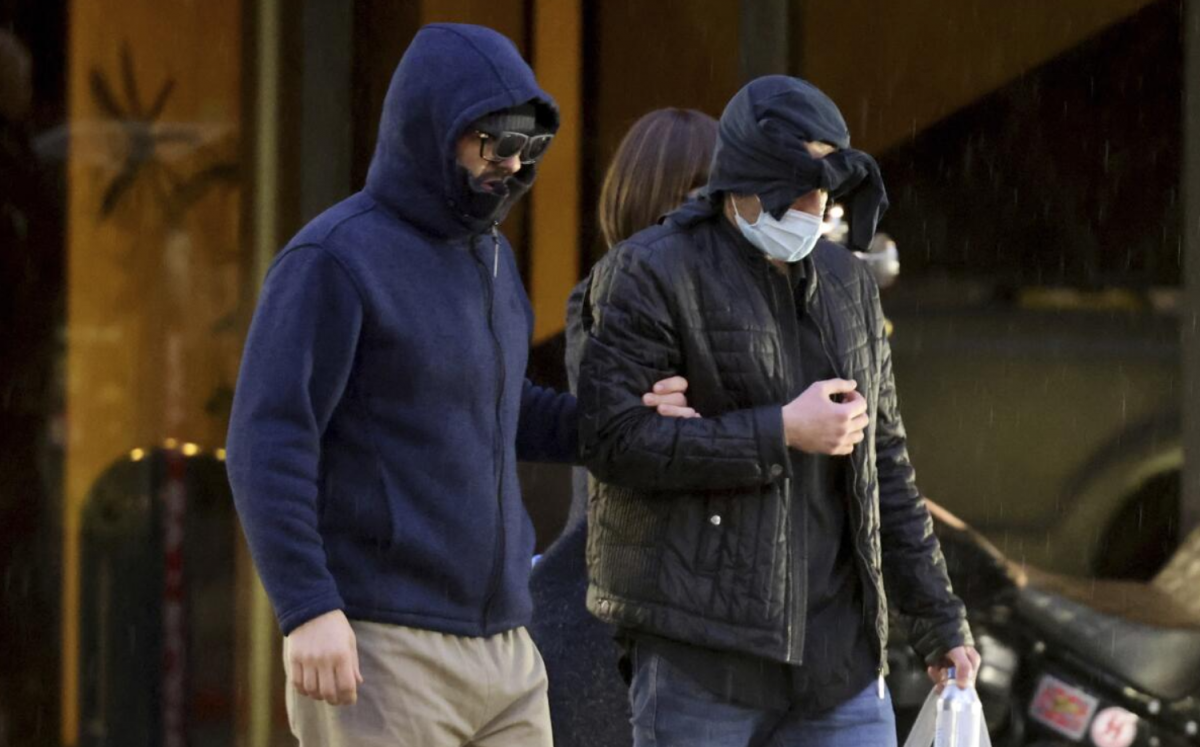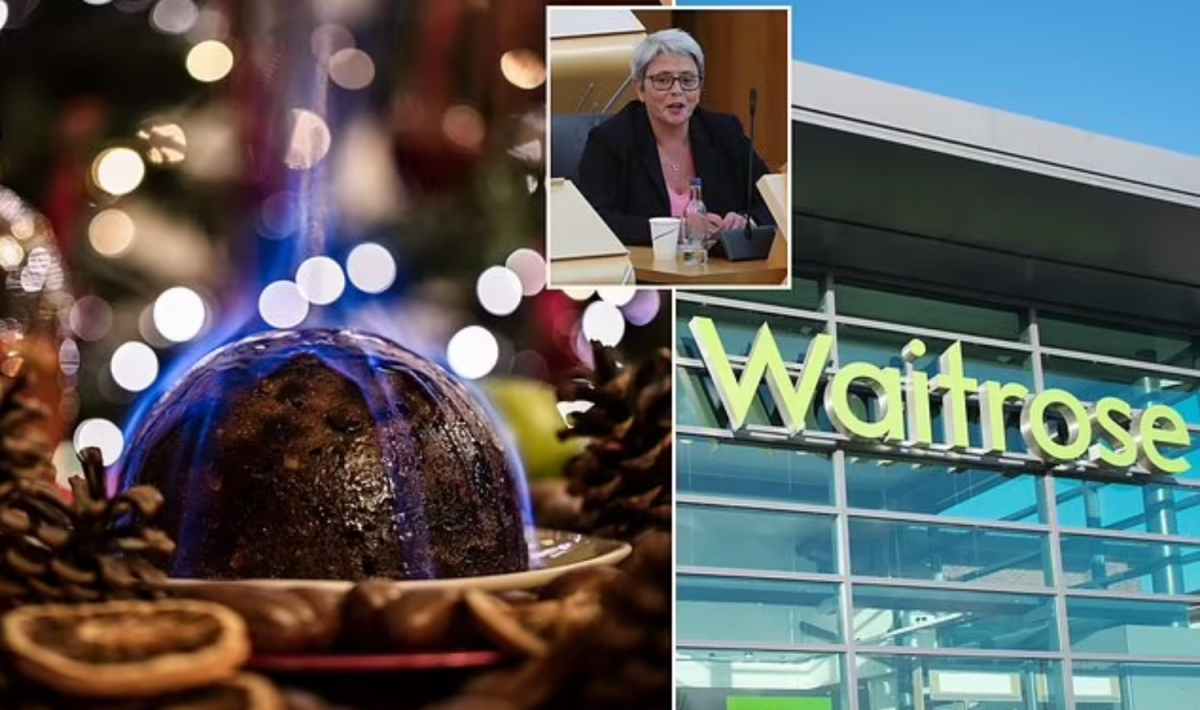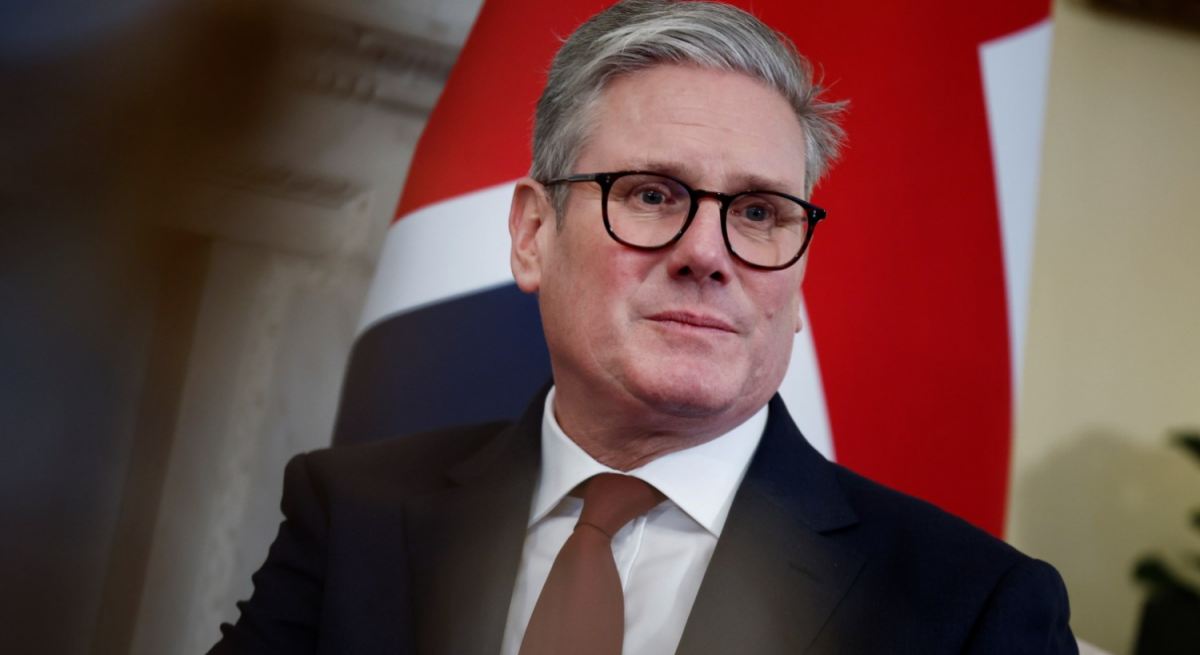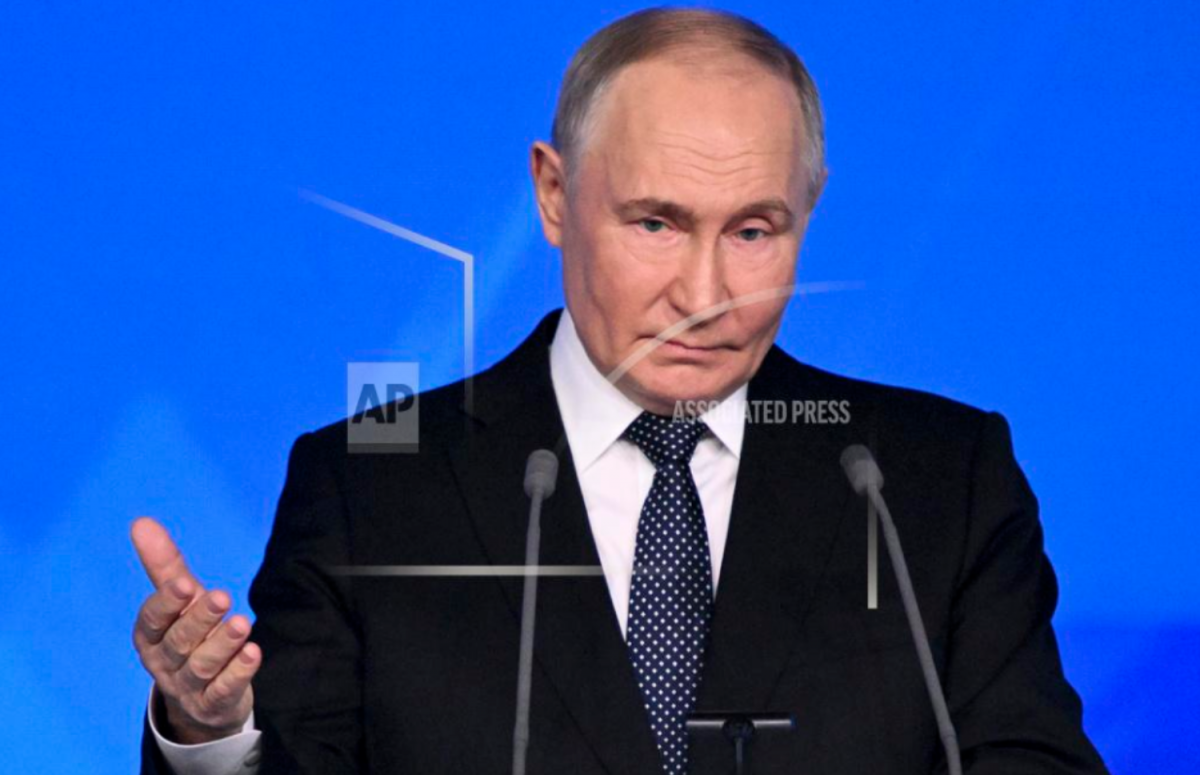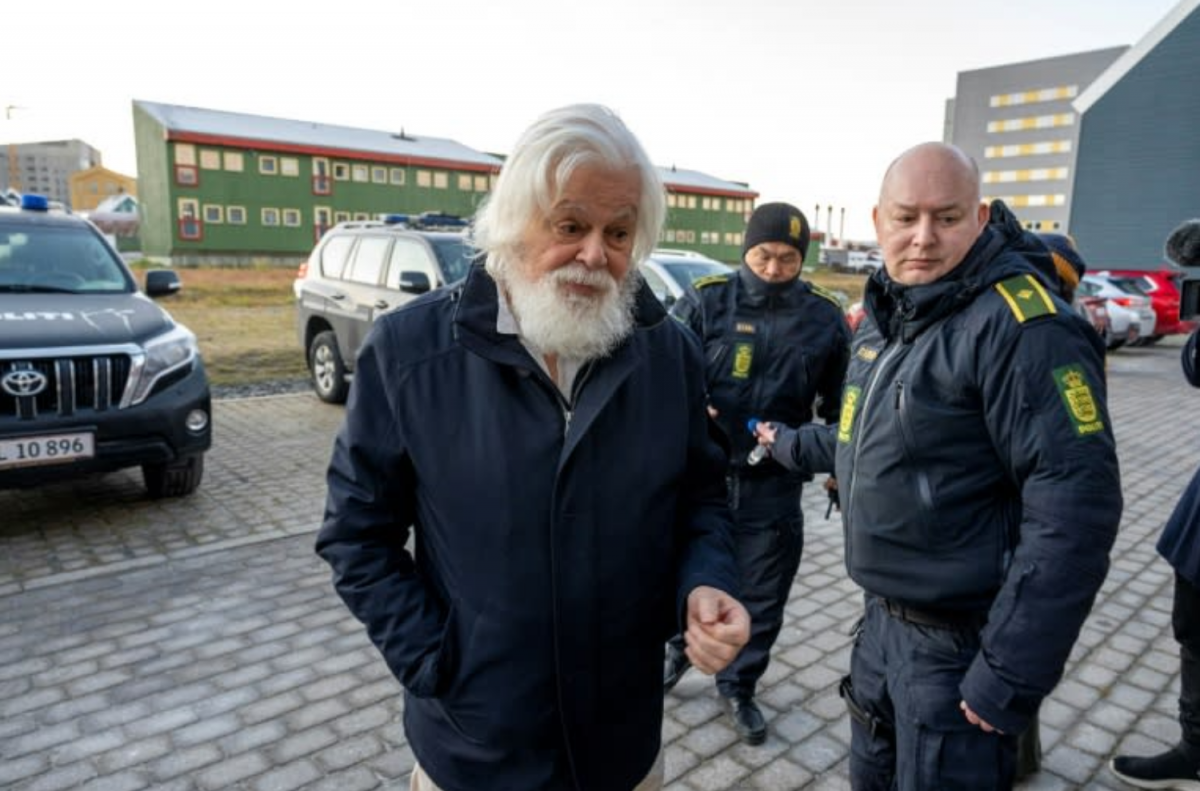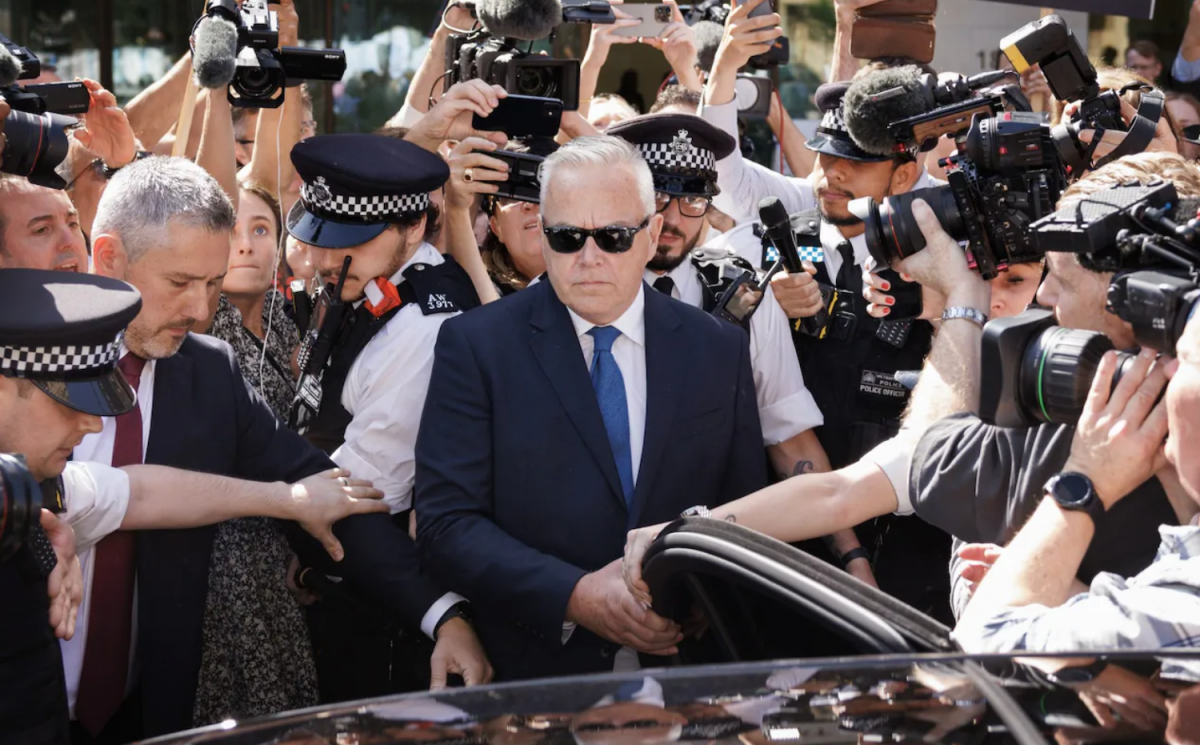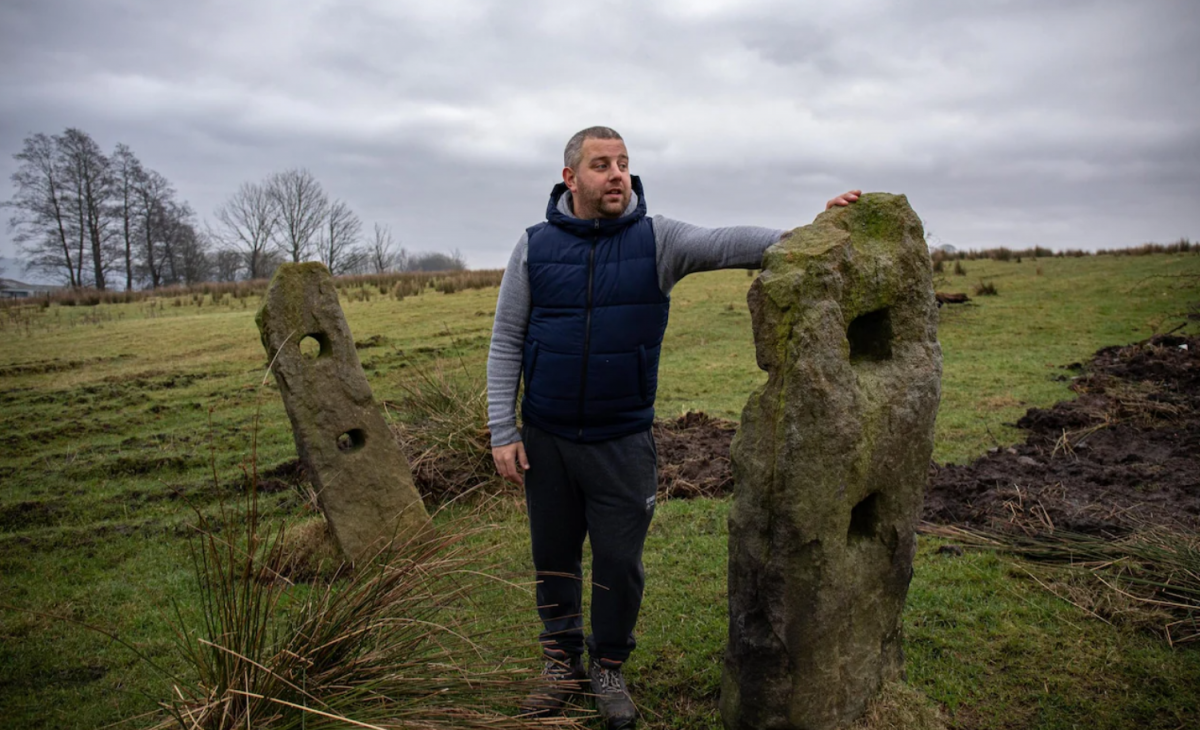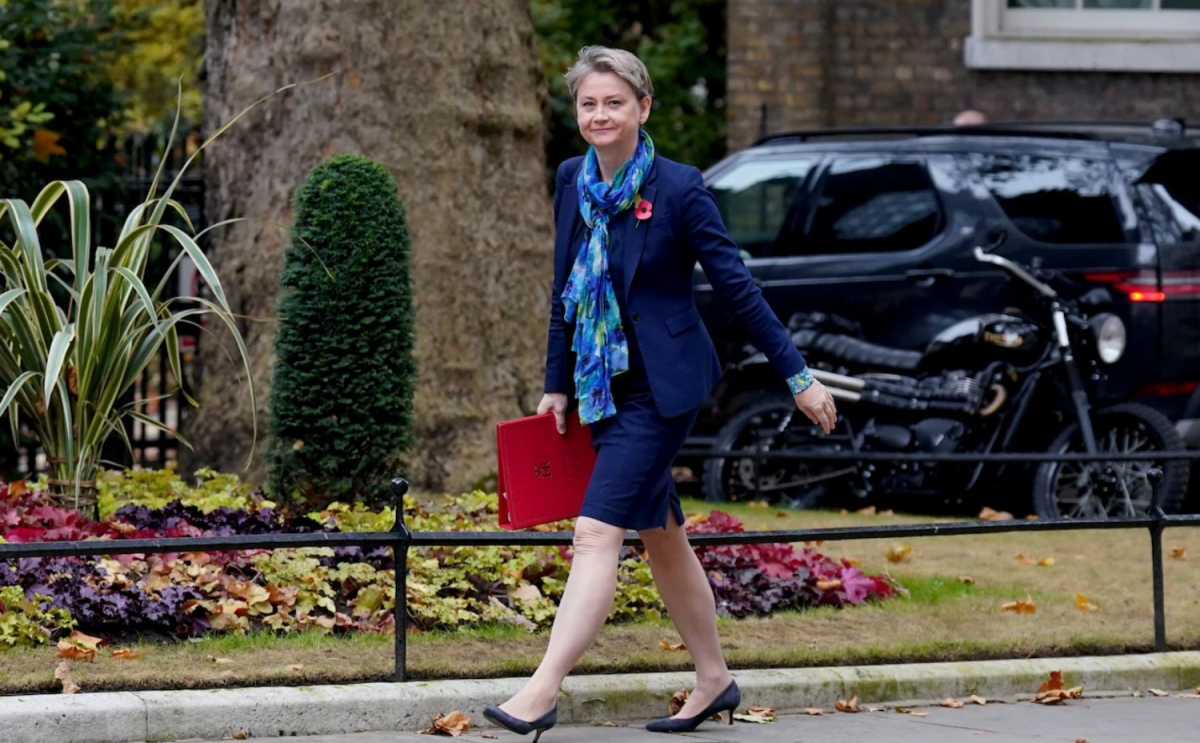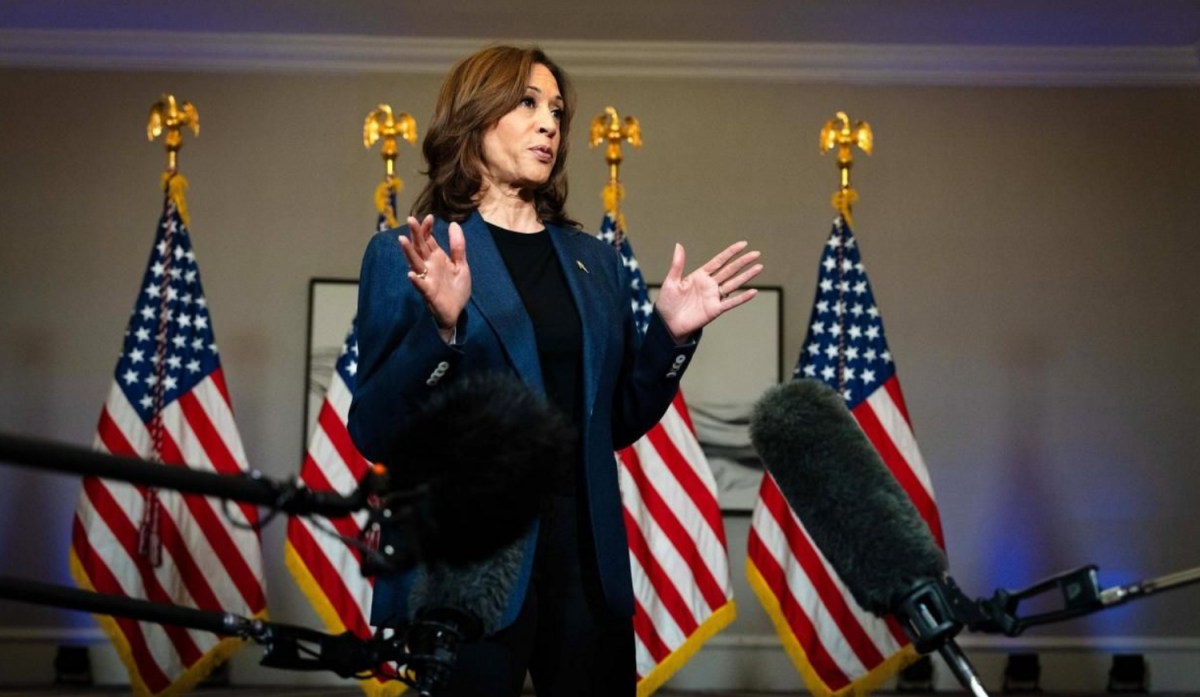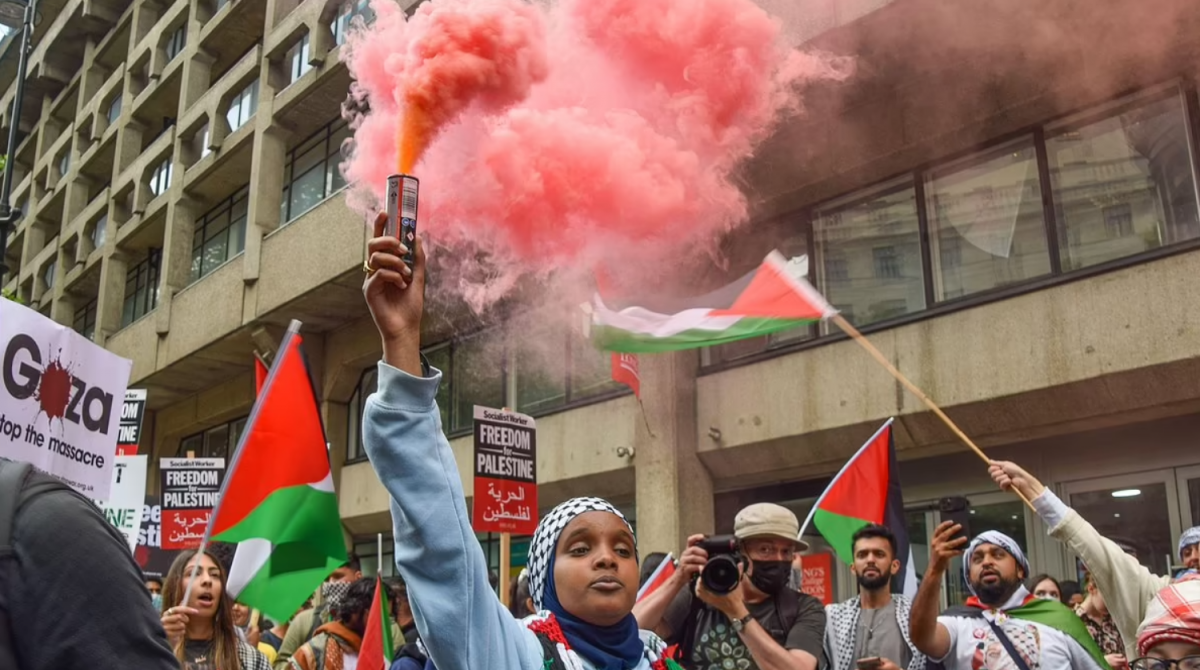-
Posts
10,734 -
Joined
-
Last visited
Content Type
Events
Forums
Downloads
Quizzes
Gallery
Blogs
Everything posted by Social Media
-
Columbia University has come under scrutiny after Joseph Massad, a professor who described Hamas’ October 7 attacks on Israel as "awesome," is slated to teach a course on Zionism. The course, according to the university's description, will examine the "History of the Jewish Enlightenment (Haskala) in 19th century Europe" and trace the development of Zionism up to the present peace process involving Israel, Arab states, and the Palestinian national movement. Massad’s controversial remarks appeared in a column for The Electronic Intifada, posted the day after Hamas’ attack, which resulted in widespread casualties and international condemnation. In the article, Massad described the actions of Palestinian fighters as “astounding,” stating, “The sight of the Palestinian resistance fighters storming Israeli checkpoints separating Gaza from Israel was astounding, not only to the Israelis but especially to the Palestinian and Arab peoples who came out across the region to march in support of the Palestinians in their battle against their cruel colonizers.” He further elaborated, saying, “No less awesome were the scenes witnessed by millions of jubilant Arabs who spent the day watching the news, of Palestinian fighters from Gaza breaking through Israel’s prison fence or gliding over it by air.” These comments, which appeared to praise the events, have sparked backlash from critics who accuse Massad of glorifying violence. Representative Ritchie Torres, a Democrat from New York and a vocal supporter of Israel in Congress, condemned Columbia University for allowing Massad to continue teaching. Taking to X, formerly known as Twitter, Torres stated, “Why should U.S. taxpayers subsidize ideological indoctrination that glorifies the mass murder, maiming, mutilation, rape, and abduction of Jews and Israelis?” Massad’s column and his upcoming course on Zionism have reignited debates surrounding academic freedom, the boundaries of political discourse, and the role of universities in addressing controversial viewpoints. Critics argue that Massad’s statements are inflammatory and inappropriate for someone teaching a subject as sensitive and contentious as Zionism, while defenders may view his writings as an expression of academic freedom and a critical perspective on ongoing conflicts in the Middle East. Columbia University has not issued a public statement on the controversy, leaving questions about how the institution will navigate the backlash and whether it will address concerns raised by critics, including lawmakers and members of the public. Columbia international and public affairs adjunct professor Lawrence Rosenblatt reportedly has resigned because of the class. Based on a report by Yahoo 2024-12-19 Related Topics: Hamas Cheering Protestors at Columbia University Columbia University Deans Resign Following Scandal Over Antisemitic Texts Outrage as Manhattan DA Drops Charges Against Columbia University Anti-Israel Protesters King’s College London Faces Backlash Over Handling of Hamas Propaganda Complaint
-
A UK court has ruled that more than £2 million can be seized from Andrew Tate and his brother Tristan after they failed to pay taxes on £21 million in revenue generated by their online businesses. The decision follows a case brought by Devon and Cornwall Police, which targeted funds held in seven frozen bank accounts associated with the brothers and a third individual, referred to as "J." At Westminster Magistrates' Court, Chief Magistrate Paul Goldspring rejected the brothers' arguments, describing their financial dealings as a "straightforward cheat of the revenue" despite the apparent complexity of their transactions. Andrew Tate responded to the ruling by calling it a "coordinated attack" and declared, "This is not justice." The court heard that the brothers had funneled just under $12 million into an account under J's name. A second account was also created in her name, even though she had no involvement in their online ventures, which include ventures like War Room, Hustlers' University, Cobra Tate, and OnlyFans. A portion of the funds in J's accounts was held as cryptocurrency. Lawyers for Devon and Cornwall Police argued that Andrew Tate had openly admitted to avoiding taxes in the UK, citing his publicly stated strategy to "ignore, ignore, ignore because in the end they go away." Judge Goldspring ruled in favor of the police, noting that the brothers failed to provide any evidence of legitimate tax payments. Instead, they had relied on their legal team’s claims that the movement of funds constituted lawful business activities. "I am satisfied that the brothers engaged in long-standing, deliberate conduct in order to evade their tax obligations," the judge wrote in his decision. As a result, the court approved the seizure of £2,683,345, including assets held in cryptocurrency. This ruling marks another significant legal setback for the Tate brothers. Romanian prosecutors charged Andrew Tate in June last year with rape, human trafficking, and forming a criminal organization. His brother Tristan faces separate allegations of human trafficking, with Romanian authorities claiming the case involves seven victims allegedly lured under false promises of love and marriage. Adding to their legal woes, Bedfordshire Police are seeking to extradite the brothers to the UK to face allegations of rape and human trafficking. A judge in Bucharest has confirmed that the extradition request will only proceed after the Romanian case reaches its conclusion. Based on a report by BBC 2024-12-19
-
The shocking murder of UnitedHealthcare CEO Brian Thompson by Luigi Mangione has ignited a firestorm of debate about left-wing violence and its growing presence in political discourse. Even before it was confirmed that the killing was politically motivated, some left-leaning voices were quick to justify, rationalize, or even celebrate the act. This reaction underscores a deeper, troubling cultural shift. In certain progressive circles, a disturbing debate has emerged over whether targeting figures of corporate power is ever justifiable. The unrestrained demonization of industries like health insurance, pharmaceuticals, and Big Oil has become commonplace, with narratives framing profit motives as the root of societal suffering. This mindset, prevalent among some college-educated activists, portrays the business world as inherently harmful—a belief that appears to have radicalized individuals like Mangione. “If any MAGA professors or journalists were online publicly defending the killing of perceived political enemies, thousands of wringing hands would be lamenting the menacing rhetoric of conservatism,” critics rightly observe. Yet, when progressive voices echo similar justifications for violence, the outrage is noticeably muted. The ideological double standard is glaring, and it demands examination. This isn’t the first time leftist rhetoric has veered dangerously toward extremism. From rationalizing the destruction caused by the Black Lives Matter riots to defending violent acts by Palestinian terrorists, certain factions of the progressive movement have normalized a continuum of ideological aggression. The result is a troubling desensitization to violence as a means of achieving political ends. When riots engulfed American cities in recent years, causing billions in damages and destroying countless lives, media coverage was often dismissive or downplayed the chaos as “mostly peaceful protests.” Contrast this with the widespread alarm over perceived threats from right-wing extremists, which led to the Justice Department creating a new category of extremists to counter “anti-government or anti-authority violent extremism.” The disparity in response reveals a selective focus on one form of extremism while turning a blind eye to another. Historically, the left has had a fraught relationship with political violence. Groups like the Weather Underground carried out bombings in the 1970s, targeting institutions like the Capitol, the Pentagon, and law enforcement. During a particularly tumultuous 18-month period from 1971 to 1972, there were over 2,500 bombings attributed to leftist groups in the United States. Alarmingly, much of this violence was either ignored or glorified by certain intellectual elites. The case of Luigi Mangione reflects a continuation of this pattern. How does an Ivy League-educated engineer, seemingly rational and accomplished, turn to such a dark path? The answer lies in a culture where incendiary rhetoric against perceived oppressors—corporate leaders, political opponents, and authority figures—is normalized, even celebrated. As the nation grapples with this tragedy, it’s clear that a broader conversation is necessary. Left-wing extremism, like its right-wing counterpart, poses a significant threat to civil discourse and societal stability. Ignoring this reality only perpetuates the cycle of violence and division. Based on a report by NYP 2024-12-18
-
Former FBI informant Alexander Smirnov admitted in court on Monday to fabricating claims about a bribery scheme involving President Joe Biden and his son Hunter Biden. His false allegations, which gained traction among certain political factions, played a significant role in fueling the GOP-led impeachment inquiry into the president. Smirnov also pleaded guilty to a separate charge of tax evasion, stemming from an indictment accusing him of concealing millions of dollars in income. According to reports, his sentence, expected to range from four to six years, will be determined in January. Additionally, Smirnov has been ordered to pay $675,502 in restitution and has agreed to settle $2.1 million in taxes and penalties for income earned between 2020 and 2022. The case sheds light on Smirnov’s role as a confidential source for the FBI before his criminal behavior came to light. He was charged in February with felony false statement and obstruction crimes. Among his most explosive claims was an accusation that Ukrainian energy company Burisma had paid $5 million each to Joe Biden and Hunter Biden during 2015 or 2016. These allegations, prosecutors revealed, were completely fabricated and began circulating in June 2020. Before his indictment, Smirnov’s identity remained unknown to the public. His statements were later revealed to be baseless, undermining their use as evidence in the impeachment inquiry. In February, Hunter Biden categorically denied involving his father in his business activities, including his position on the board of Burisma. Responding to the impeachment inquiry, he criticized the process, while Republicans failed to uncover evidence suggesting that President Biden had benefitted from his son’s international business dealings. Smirnov’s guilty plea highlights the dangers of politically charged misinformation and its potential impact on public trust. As the legal proceedings continue, the case underscores the importance of verifying claims before using them as the basis for political or legal action. Based on a report by AXIOS 2024-12-18
-
A self-checkout glitch at Waitrose in Scotland has left shoppers frustrated after being prevented from purchasing Christmas treats containing alcohol before 10am. Due to the country’s strict alcohol laws, which dictate when alcoholic beverages can be sold, products like Christmas puddings and cakes laced with spirits have been mistakenly flagged as restricted items. Scottish regulations prevent the sale of alcohol in shops between 10pm and 10am. While such laws are designed to curb alcohol misuse, they’ve inadvertently extended to festive delicacies, leaving shoppers baffled and irritated. One shopper, Stewart Meldrum from Renfrewshire, shared how his wife Carol was prevented from buying a tiramisu at a self-service checkout. “At the self-service checkout, she was notified ‘assistance required,’” he explained to the *Scottish Daily Mail*. “Baffled as to why, the assistant told her that the product she was trying to scan through contained alcohol and as it was before 10am, the purchase was unlawful.” The problem didn’t stop there. Meldrum said he witnessed another shopper experiencing the same issue while trying to buy a Christmas cake. Frustrated, Carol ultimately left without her dessert. “What next? Will they cordon off the tiramisu at night?” Meldrum, 75, asked. “Why do we in Scotland tolerate such ludicrous micro-governance? I’m seething.” Waitrose, whose festive range includes products such as a £15 Cointreau and Cranberry Christmas pudding and a £19 fruit cake infused with brandy, apologized to affected customers. A spokesperson for the retailer assured shoppers that the issue was a “temporary error” and would be fixed shortly. “We’re very sorry for the inconvenience Mr and Mrs Meldrum experienced – this was a temporary error with our system and will be resolved very soon,” they said. The controversy highlights growing frustrations around Scotland’s unique alcohol laws, which not only restrict sales during specific hours but also ban multibuy offers and enforce a minimum pricing policy. Recently, the minimum price per unit increased to 65p, meaning a bottle of wine now costs at least £6.34, while a bottle of whisky cannot be sold for less than £18.20. Critics argue that such policies disproportionately impact Scottish retailers. Annie Wells, the Scottish Conservatives’ alcohol spokesperson, accused Waitrose of overcomplicating the rules. “Common sense should prevail to ensure that these restrictions are kept within the spirit of the law instead of depriving grown adults from purchasing quintessential Christmas delicacies,” she said. Meanwhile, concerns have grown that stricter alcohol pricing and sales laws are driving Scots to shop in northern England or order from online retailers offering lower prices. Hassan Lal, district president of the Federation of Independent Retailers, expressed worry about the long-term impact on small businesses. “We’ve been left with a very unlevel playing field,” he said. “People are still drinking the same but they are finding alternative ways of buying it. It is the small independent Scottish retailers who are being hit, and the English supermarkets are making the money.” The situation at Waitrose serves as an example of how regulations designed to tackle alcohol-related issues can sometimes cause unintended inconvenience. While Waitrose works to resolve the glitch, shoppers like Carol Meldrum are left questioning the balance between regulation and common sense, particularly when Christmas treats like tiramisu and fruit cake are flagged as contraband before breakfast time. Based on a report by Daily Telegraph 2024-12-18
-
Downing Street has sparked debate after refusing to rule out a return to European Court of Justice (ECJ) oversight in certain areas as part of an improved trade relationship with the European Union. This marks a potential shift in the UK’s approach to Brexit-related agreements under Sir Keir Starmer’s leadership. The prospect of aligning with EU laws comes as ministers from the bloc are expected to push for Britain to follow European food and agricultural standards in new negotiations. The talks, set to begin in spring, aim to address the economic impact of post-Brexit trade barriers, which are estimated to have cost the UK economy £3 billion annually. Accepting EU standards would likely mean adhering to ECJ rulings in specific areas — a condition the previous Conservative government firmly rejected when finalizing the original trade deal in 2020. When questioned on Monday about these potential concessions, the prime minister’s spokesman remained non-committal. “The prime minister has been clear that we’ve left the EU, we’re not rejoining the single market, the customs union or [reintroducing] freedom of movement. That obviously remains the UK’s position,” he said, adding that the goal of the talks is to “make a tangible difference” to UK businesses. While Starmer maintains that he will not reverse Brexit or undermine the UK’s sovereignty, critics argue that his flexible stance could lead Britain back under EU legal influence. Lord Frost, who spearheaded the 2020 trade deal, criticized the ambiguity. “Unless HMG rule out the European Court of Justice, we must assume they are open to the possibility,” he said. “Anyone who thinks the solution to this country’s problems is giving foreign courts more powers over us is truly deluded.” The issue has been compounded by recent legal disputes launched by Brussels against the UK, predating the current agreement. The European Commission has accused Britain of imposing unfair restrictions on EU citizens’ family members and failing to terminate bilateral investment agreements with six EU member states. These cases, now heading to the ECJ, underscore the lingering legal friction between the UK and the EU. Priti Patel, shadow foreign secretary, warned that these cases should serve as a cautionary tale for Starmer. “The EU’s enthusiasm to continue to take proceedings against us in the ECJ should be a warning to Keir Starmer as he tries to edge us back under its jurisdiction in more areas and extend mobility rights for EU citizens,” she said. Patel accused Labour of undermining the country’s sovereignty, stating, “Instead of focusing on securing growth through a competitive domestic economy and global trade, they want to tie our hands up in the EU.” Despite the backlash, Downing Street has remained focused on the potential benefits of resetting relations with Brussels. Starmer’s team insists the negotiations are about practicality rather than political reversal. They argue that smoothing trade barriers and improving cooperation on security and immigration could bring real advantages to businesses and the public. The debate highlights the broader tension between maintaining Brexit’s hard-won independence and addressing the economic realities of strained UK-EU trade. For now, Starmer’s government remains committed to exploring ways to “improve the relationship” without explicitly committing to or ruling out concessions that involve the ECJ. Whether this balancing act can satisfy both EU negotiators and domestic critics remains to be seen as the talks draw nearer. Based on a report by The Times 2024-12-18
-
Russian President Vladimir Putin will not be invited to the upcoming G20 summit in South Africa due to the outstanding arrest warrant issued by the International Criminal Court (ICC), South African presidential spokesperson Vincent Magwenya confirmed on Dec. 15 in an interview with Russia’s state-owned TASS news agency. The legal situation surrounding Putin’s ICC warrant remains unchanged since South Africa last grappled with the issue during the August BRICS summit in Johannesburg. “The legal situation has not changed since the BRICS summit in Johannesburg. We cannot influence the ICC's decisions in any way,” Magwenya explained. South Africa, which began chairing the G20 on Dec. 1, must adhere to the ICC’s mandates as a signatory to the Rome Statute. The next G20 summit is scheduled to take place on Nov. 21-22, 2025. South Africa’s position highlights the delicate balancing act the nation maintains between its legal obligations under international law and its geopolitical alliances. While officially declaring neutrality in the ongoing war between Russia and Ukraine, South Africa has simultaneously worked to strengthen its economic and political ties with Moscow. The nation’s BRICS membership alongside Russia, China, and other emerging economies underscores this relationship. Last year, South Africa participated in joint naval drills with Russia and China, signaling deeper cooperation despite international scrutiny. The ICC issued an arrest warrant for Putin in March 2023, accusing him of war crimes related to the alleged forced deportation of Ukrainian children to Russia following its February 2022 invasion of Ukraine. The warrant significantly restricts Putin’s international travel, as ICC member states are obligated to detain him upon entry. South Africa’s adherence to the Rome Statute means hosting Putin would have exposed the nation to severe diplomatic and legal challenges. This same dilemma compelled Putin to avoid attending the BRICS summit earlier this year, where he was represented by Russian Foreign Minister Sergey Lavrov. Similarly, Putin refrained from attending the November G20 summit in Brazil, another ICC signatory, choosing instead to send Lavrov. Despite these restrictions, Putin continues to engage in selective diplomatic outreach. In September, he visited Mongolia, an ICC member state, where he received a notably warm reception in the capital city of Ulaanbaatar. Meanwhile, Russia maintains close ties with several G20 countries, including China and India, which have deepened economic cooperation with Moscow amid its ongoing full-scale invasion of Ukraine. South Africa’s decision to uphold the ICC warrant by excluding Putin from its G20 summit underscores the broader international tensions surrounding the Russian leader’s legal and political predicament. While the nation seeks to navigate its commitments under international law, its close ties with Russia and other BRICS nations add layers of complexity to an already intricate geopolitical landscape. Based on a report by Kyiv Independent 2024-12-18
-
Lambeth Council, a Labour-run borough in south London, has announced plans to dim streetlights “mostly during the middle of the night” as part of measures to reduce energy costs and address a significant budget shortfall. This decision comes after the council spent £25 million on climate initiatives, drawing criticism for prioritizing environmental projects over improving its core services. Citing “years of austerity,” the council also plans to increase parking charges and review council tax support and children’s centre provisions as part of its cost-saving measures. Meanwhile, the borough has faced scrutiny over its financial management. A 2023 investigation by *The Times* revealed Lambeth had allocated large sums to projects such as rain gardens, low-traffic neighbourhoods (LTNs), and cycle lanes, all aligned with its ambition to become net-zero by 2030—20 years ahead of the national target. Despite these climate-focused efforts, Lambeth has been flagged as one of the least effective councils in England for delivering essential services like adult social care and housing. Financial transparency has also been an issue, as the council has not published audited accounts for the past two financial years. A freedom of information request revealed that Lambeth carried debts of £936 million as of the last tax year, with annual interest payments nearing £10 million. Its last audited accounts from March 2022 also reported a pension liability of £116 million. The council's financial strategy report, released last week, highlighted a forecasted budget deficit of £69 million over the next four years, driven by inflation and the rising cost of emergency accommodation. Among the proposals to address this shortfall is the dimming of streetlights, a move the council claims will enhance its environmental record by reducing light pollution and energy use while maintaining public safety. However, Lambeth has not specified the potential savings from this measure. For context, Bracknell Forest Council, which serves a population less than half the size of Lambeth’s across a much larger area, estimated annual savings of £50,000 by dimming its streetlights by 10 percent. Critics have expressed concern about the implications of dimmer streetlights for public safety. The Suzy Lamplugh Trust, an anti-stalking charity, and Our Streets Now, which campaigns against public sexual harassment, have argued that such decisions often overlook women’s safety. Our Streets Now has criticized councils for treating these concerns as an “afterthought.” The council’s spending on salaries has also drawn attention. Lambeth employs 3,003 people, with an average annual salary of £48,163, marking a 6 percent increase from the previous year. Over 40 staff members earn more than £100,000 annually, including a director of climate and inclusive growth on £160,334—double his prior salary in the Mayor of London’s office. Other high earners include a director of climate change, planning, and transport (£143,355) and a director of community safety and resilience (£117,957). Additionally, more than 1,000 employees earn over £50,000, twice the number reported three years ago. The council spent £25 million on pension contributions last year, averaging nearly £8,500 per employee. These figures, alongside Lambeth’s significant debt and service failures, have fueled debate over the borough’s financial priorities. The council’s former headquarters, Phoenix House in Vauxhall, has been empty for five years since the authority developed a new site in Brixton. The local Liberal Democrats say that the empty building is costing £800,000 a year to run. Despite Lambeth’s difficult financial position, it has spent £3.4 million on LTNs and £2.9 million on cycle lanes over the past five years. It has also spent £21 million on “decarbonisation and climate resilience” work, which includes making buildings more energy-efficient and adopting electric vehicles. As the council seeks to navigate its financial crisis, its climate initiatives and spending practices remain under intense public scrutiny. Based on a report by Times & Sunday Times 2024-12-18
-
Anti-whaling advocate Paul Watson, founder of the Sea Shepherd and Captain Paul Watson Foundation (CPWF), has been released from detention in Greenland after Denmark rejected a Japanese extradition request. Watson, 74, had been held since July when his ship docked in Nuuk, Greenland’s capital, on the basis of a Japanese warrant issued in 2012. The charges stemmed from a 2010 confrontation with a whaling ship. Greenlandic police confirmed Watson's release in a statement, noting that the Danish Ministry of Justice ultimately chose not to proceed with the extradition. “He is free. We've just been informed by the Ministry of Justice, he's not going to be extradited,” said Watson's lawyer Julie Stage in a statement to AFP. Watson was officially released at 8:46 AM local time (1046 GMT) on Tuesday. The extradition request by Japan accused Watson of injuring a crew member and causing damage to the *Shonan Maru 2*, a whaling vessel, during a Sea Shepherd operation. The incident involved the use of a “stink bomb” intended to disrupt the whaling activities. Watson and his legal team, however, have maintained that the charges are unfounded. His lawyers cite video evidence showing that no crew member was on deck when the stink bomb was thrown. In its reasoning for rejecting the extradition, Denmark highlighted the significant time elapsed since the alleged incident—over 14 years—and the extended detention Watson had already endured. “The decision is based on an overall assessment of the circumstances of the specific case,” the Ministry of Justice stated. Japan has been under scrutiny for its whaling operations, which it has often justified as scientific research despite international criticism. Watson’s lawyer, François Zimeray, accused Japan of attempting to suppress Watson’s activism, saying, “Japan tried to silence a man whose only crime was to denounce the illegality of the industrial massacre disguised as scientific research.” Zimeray added that Watson would now return to his environmental advocacy. “He will now be able to resume his fight for respect for nature,” he said. Zimeray further criticized Japan’s judicial system, stating, “In Japan, there is a presumption of guilt. Prosecutors are proud to announce that they have a 99.6 percent conviction rate.” Watson has been a prominent and controversial figure in the anti-whaling movement for decades. His tactics, often radical and confrontational, were chronicled in the reality TV series *Whale Wars*, which brought international attention to his campaigns. In July, Watson’s arrest came as his ship prepared to “intercept” a new Japanese whaling factory vessel in the North Pacific, an action planned under his CPWF organization. The decision to release Watson has been celebrated by environmental activists and supporters who view his actions as part of a broader mission to protect marine life and combat illegal whaling. For now, Watson is free to continue his crusade, one that has made him both a hero to conservationists and a target for governments like Japan. Based on a report by AFP 2024-12-18
-
Jac Davies, 25, has avoided jail after being convicted of possessing indecent images of children and Class A drugs, following arguments from his defense that his punishment should align with the sentence received by disgraced BBC newsreader Huw Edwards. Leeds Magistrates’ Court heard that Davies became the subject of investigation after South Wales Police uncovered his involvement in sharing indecent images alongside Alex Williams, a convicted paedophile. During the prosecution, Michelle Kruger explained, “South Wales Police had been dealing with Alex Williams. As part of the investigation into that individual, this defendant was found to have been involved in indecent images being shared. Also involved... was a link between Alex Williams and Huw Edwards, the BBC News presenter.” Both Williams and Edwards had already faced court proceedings for their roles in the case, with Edwards receiving a suspended sentence. Davies, too, was granted a suspended sentence of 12 months, to be served over two years, after pleading guilty to the charges. Stewart Page, representing Davies, emphasized the need for “parity” in sentencing, referencing the outcome of Edwards's case. “I think it’s incumbent upon me to mention that you also need to consider parity on sentence,” Page told the court. “You are aware of a certain individual who was sentenced a number of months ago – he too had no previous convictions. The offences that that individual appeared before the court [for] were similar to what Mr. Davies appears [for], and of course, you are aware, because the prosecutor outlined this, that a suspended sentence was imposed on that case.” Davies’s legal team underscored his clean criminal record prior to this conviction, mirroring Edwards’s case. The defense argued that the precedent set should apply to Davies to ensure fairness and consistency in sentencing. The judge ultimately agreed to a suspended sentence, sparing Davies immediate imprisonment. The case has sparked discussions surrounding sentencing parity in courts and how high-profile cases influence legal outcomes. Based on a report by Daily Telegraph 2024-12-18
-
The legal battles surrounding Donald Trump have taken another turn as New York Justice Juan Merchan refused to dismiss the guilty verdict against the former president in his hush money case. Trump, who appears poised to reenter the White House, is likely to do so as the first convicted felon president, raising unprecedented legal and political questions. Trump’s attorneys had argued that his status as a president-elect granted him immunity from prosecution. They claimed the jury’s conviction — tied to falsified business records and payments to adult film star Stormy Daniels — should be overturned. However, Judge Merchan rejected the argument, emphasizing that the evidence of guilt was overwhelming and that the crimes were unrelated to presidential duties. “If error occurred regarding the introduction of the challenged evidence, such error was harmless in light of the overwhelming evidence of guilt,” Merchan stated. The judge underscored that the evidence presented to the jury involved personal actions, not conduct tied to the presidency, and therefore was not protected by any form of immunity. The charges stem from a scheme to silence Daniels during Trump’s 2016 campaign. Her story of an alleged affair threatened to disrupt his political momentum, prompting his then-lawyer Michael Cohen to pay her $130,000. Trump’s reimbursement to Cohen was falsely recorded as legal expenses, leading to a jury convicting Trump on 34 felony counts of falsifying business records. Trump’s legal team has contended that his “overwhelming victory” in the presidential election and his role as a “soon-to-be sitting president” justify broader immunity protections. They also argued that the ongoing criminal proceedings could unconstitutionally distract from his forthcoming presidency. Despite these claims, Merchan made it clear that the law does not shield personal acts falling outside the scope of official presidential duties. “There is no danger of intrusion on the authority and function of the Executive Branch in this case,” Merchan wrote, noting that Trump’s actions were not protected by the Supreme Court’s recent rulings on presidential immunity. While the Supreme Court granted absolute immunity for actions tied to official duties, it does not extend to personal misconduct outside the “outer perimeter” of presidential authority. Manhattan prosecutors, led by District Attorney Alvin Bragg, argued against dismissing the verdict or delaying sentencing indefinitely. They stated that “president-elect immunity does not exist” and warned against the extreme remedy of erasing the jury’s unanimous guilty verdict. Prosecutors suggested delaying sentencing until Trump’s presidency ends in 2029, reflecting the unusual circumstances of the case. This legal standoff places Trump in uncharted territory. While his attorneys seek to halt proceedings, it is increasingly likely he will assume office without facing immediate consequences for the convictions against him. Complicating matters further, special counsel Jack Smith has paused federal criminal investigations into Trump for now, and an appeals court in Georgia has delayed hearings on his election interference case. Nonetheless, the ongoing legal challenges cast a shadow over Trump’s potential return to the presidency, creating an unprecedented intersection of politics and criminal law. Based on a report by The Independent 2024-12-18
-
The billionaire Issa brothers are facing significant opposition following their renewed attempt to develop Britain’s largest Muslim cemetery in Oswaldtwistle, Lancashire. The ambitious plan for a 45-acre Memorial Garden site has drawn criticism from local councillors and residents who fear the project will exacerbate road congestion, threaten wildlife, and pose environmental risks. The proposed development includes 12,250 burial plots, a funeral parlour, and prayer halls, making it larger than the Gardens of Peace in east London, currently the UK’s biggest Muslim cemetery. This marks a scaled-back version of an earlier 85-acre proposal that was withdrawn earlier this year after strong local opposition. Despite the revisions, concerns about the project persist. The cemetery plan is spearheaded by a charity established by Zuber and Mohsin Issa, who have become prominent figures in British business. Born to Indian immigrants, the brothers built their empire from a single petrol station in Bury, expanding it to nearly 6,000 branches. Their acquisitions include Asda, one of the UK’s largest supermarket chains, as well as Cooplands and Leon. However, their latest venture has sparked unease in the local community. Steve Smithson, a Conservative councillor, expressed strong reservations about the potential impact of the cemetery on local infrastructure. “Locals are deeply concerned about traffic safety on Blackburn Road,” he said, describing it as “the most dangerous road in Oswaldtwistle.” Highlighting the strain that increased traffic from daily funerals and large events could place on the area, he warned, “Numbers exceeding 400 during large events would strain the road network, heightening the risk of accidents and an increase to carbon emissions.” Smithson also pointed to environmental risks, emphasizing the site’s geological features and high water table. He warned that burial activities could lead to groundwater contamination, potentially affecting nearby allotments, gardens, and local waterways. “Seasonal flooding further exacerbates these risks, with the lower fields frequently underwater for months,” he added. While the Issa brothers’ proposal seeks to address a growing need for burial spaces in the Muslim community, it has reignited a debate over balancing community needs with environmental sustainability and local infrastructure capacity. Residents and councillors alike are urging local authorities to carefully weigh the potential consequences before making a decision. For now, the controversy surrounding the proposed cemetery underscores the challenges of large-scale developments in sensitive areas. Based on a report by Daily Telegraph 2024-12-17
-
The United Kingdom is joining forces with Italy to tackle the growing issue of people-smuggling gangs, employing tactics inspired by Italy’s successful efforts against the mafia. Yvette Cooper, the Home Secretary, announced the creation of a joint taskforce during her visit to Italy, signaling a determined new approach to combating illegal migration and organized crime. The taskforce will adopt a “follow the money” strategy, aiming to disrupt the illicit financial networks that underpin people-smuggling operations. This collaboration comes after senior officials from both countries, including representatives from the UK’s National Crime Agency (NCA) and Italian police forces, convened to finalize the plan. The focus will be on identifying and freezing criminal bank accounts, conducting joint operations, and prosecuting key players in international smuggling rings. Specialist financial investigators, forensic accountants, and law enforcement officers with experience in tackling mafia operations will be at the forefront of this initiative. By leveraging Italy’s expertise in dismantling organized crime networks, Britain hopes to strengthen its crackdown on the criminal enterprises that exploit vulnerable migrants. Cooper emphasized that this effort is part of a broader strategy to enhance immigration enforcement. She announced an £8 million investment to equip immigration officers with biometric kits and body-worn cameras to gather evidence more effectively. This technological upgrade aims to support prosecutions and address the increasing number of illegal migrants and offenders being returned to their home countries. In a bid to counter claims from France that Britain is viewed as an “El Dorado” for Channel migrants due to black-market work opportunities, the UK is taking decisive action against illegal employment. The government has allocated £5 million to provide 1,200 immigration officers with body-worn cameras, ensuring courts have access to indisputable evidence of illegal working practices. An additional £3 million will fund fingerprint kits for on-the-spot identification of migrants and high-risk individuals. Cooper also revealed that nearly 13,500 illegal migrants and foreign offenders have been returned since Labour took office, putting the government on track for the highest removal figures in five years. This marks a significant escalation in efforts to address illegal immigration and organized crime. As part of the joint taskforce, Britain and Italy will share intelligence through the UK’s new Border Security Command. This includes a top-secret illicit finance threat assessment detailing how organized immigration crime groups collect, process, and use their funds. The partnership will also collaborate with Empact, a European Union security initiative, to map and disrupt illegal money transfers facilitated by informal systems like hawala. By aligning their resources and expertise, the UK and Italy aim to strike at the financial heart of people-smuggling operations. With a combination of advanced technology, international intelligence-sharing, and targeted prosecutions, this joint effort seeks to dismantle the networks enabling one of Europe’s most pressing migration challenges. Based on a report by Daily Telegraph 2024-12-17
-
Reform UK’s finance chief, Nick Candy, is reportedly set to meet Elon Musk, fueling speculation that the world’s richest man might contribute $100 million to Nigel Farage’s political party. The potential donation, if realized, could dramatically reshape the political landscape in Britain, although it has already sparked concerns about foreign influence on UK politics. Nick Candy, a property tycoon who recently joined Reform UK as its Treasurer, has committed £1 million of his own funds to the party and is actively seeking additional backing from wealthy business figures. According to Candy, Musk might be one of those high-profile contributors, with rumors swirling about his interest in supporting the growing political force. Candy has hinted that Musk, who owns the social media platform X (formerly Twitter) and is known for his outspoken political views, "would like to help" Reform UK. The billionaire has previously been critical of Labour leader Keir Starmer and has shown interest in the party’s progress on X. Candy noted Musk's political influence in the United States, where the tech mogul has played a role in galvanizing support for figures like Donald Trump. "Elon’s managed to do an incredible job for President-elect Trump, and he’s sort of changed the political spectrum in America," Candy said in an interview. "He knows how to get things done. I want to understand how he got those people out in Pennsylvania. I want to learn from him." While Candy stopped short of confirming any scheduled meeting, he strongly hinted at a potential collaboration, stating, "You might be seeing something soon on that." He declined to provide further details about whether he would travel to the United States to meet Musk, emphasizing the need to keep certain discussions private. Nigel Farage, the leader of Reform UK, has denied any knowledge of Musk’s potential involvement but made it clear that the party would welcome financial support. "If money were offered, we will take it," Farage said. Candy also highlighted the rapid growth of Reform UK's membership base, suggesting it may soon surpass the Conservative Party’s reported 130,000 members. "The oldest political party in this country... will be overtaken in members by the newest political party in this country – and that is mind-blowing," he said. Despite the enthusiasm surrounding a possible Musk contribution, critics have raised concerns about the implications of foreign influence on British politics. Candy dismissed these criticisms, arguing that any donations would adhere to legal regulations. He pointed out that Musk could contribute through his UK-registered companies, such as Tesla or X, stating, "We would like him to help... I would like him to help." The prospect of a $100 million influx could significantly boost Reform UK’s standing, particularly as it seeks to expand its influence and climb in the polls. Insiders from rival parties acknowledge that funding on this scale could be a game-changer, potentially elevating Reform UK to new levels of political prominence. Based on a report by Daily Mail 2024-12-17
-
Thousands of pages of evidence detailing the brutal crimes of Bashar al-Assad’s regime have surfaced, marking the beginning of a global effort to hold his perpetrators accountable. One war crimes investigator has called this process "bigger than Nuremberg." As the hunt for Assad’s henchmen accelerates, the painstakingly collected evidence may yet deliver justice for countless victims of his reign of terror. Following Assad's escape to Moscow under the protection of his Russian allies, many of his military officers and security officials are reportedly fleeing in fear of retribution. But the key to their prosecution lies in an unmarked office in a European city. Behind a locked door, 406 brown cardboard boxes hold over 1.3 million documents. This trove, known as the Assad archive, was meticulously compiled over 13 years by Canadian lawyer and war crimes investigator Bill Wiley and his team at the Commission for International Justice and Accountability (CIJA). The effort to collect these documents was fraught with danger. Wiley’s team, composed of Syrians operating on the ground, took extraordinary risks to smuggle the evidence out of the country. Disguised as shepherds and traders, they moved filing cabinets of records past checkpoints, using methods ranging from trucks to rafts. Tragically, one member of the team was killed by the regime, another was injured, and one was kidnapped by a rebel group. Some had to be relocated to safety outside Syria. In some instances, documents had to be hidden temporarily in secure locations because moving them was too perilous. Despite these dangers, hundreds of kilos of evidence were successfully transported out of Syria to be digitally scanned and analyzed. CIJA’s work, funded by the British, German, and U.S. governments, has revealed a chilling picture of the Assad regime's systematic repression. According to Wiley, “This is the most documented repression in history. Like the Nazis but with computers.” The Assad regime’s obsession with documentation created a paper trail of atrocities, underscoring its bureaucracy of death. Mohammad al Abdallah, a former prisoner and founder of the Syria Justice and Accountability Centre, described the killings as a cold, bureaucratic routine. "Killing those people was a bureaucratic day-to-day business," he said. The atrocities extended beyond execution orders and administrative paperwork. A defector code-named “Caesar,” a former Syrian military photographer, smuggled out approximately 55,000 photographs in 2013. These images depicted the corpses of detainees—up to 50 per day—delivered to military hospitals from security services. Assad’s regime followed in the grim footsteps of his father, Hafez al-Assad, who ruled Syria from 1970 to 2000. Reports suggest that Hafez was once advised by Alois Brunner, a former Nazi and deputy to Adolf Eichmann, who had sought refuge in Damascus. While the Assad regime’s exact death toll is unknown, United Nations estimates indicate that over 300,000 civilians have died since 2011, with at least 100,000 forcibly disappeared. Though Assad has found temporary refuge in Moscow alongside other exiled figures like former Ukrainian president Viktor Yanukovych, Wiley remains confident that justice will prevail. "Putin will hand him over within three years," he predicted. The documents housed in those unassuming boxes could ensure that the atrocities committed under Assad’s rule do not go unpunished. Based on a report by The Times 2024-12-17
-
In a week marked by high-profile meetings and striking displays of deference, leading CEOs from the worlds of tech and finance flocked to Donald Trump’s side, signaling a shift in relationships between corporate leaders and the former president. Apple CEO Tim Cook, Google CEO Sundar Pichai, and Google cofounder Sergey Brin were among those who made visits to Mar-a-Lago, with Mark Zuckerberg arriving just before Thanksgiving and Jeff Bezos set to meet Trump next week. These meetings occurred against a backdrop of significant financial support for Trump from some of the world’s most influential companies. Meta, Amazon, OpenAI, and others each contributed $1 million to Trump’s inaugural fund, underscoring their investment in his political and economic vision. OpenAI CEO Sam Altman expressed unreserved support, saying, “President Trump will lead our country into the age of AI, and I am eager to support his efforts to ensure America stays ahead.” Trump himself relished the attention, opening the New York Stock Exchange to the applause of Wall Street, framed by a massive Platon portrait of himself as TIME magazine's "Person of the Year." The event served as a symbolic culmination of his victory lap, drawing dozens of executives to witness the moment. Behind red velvet ropes, figures from Visa, Goldman Sachs, Meta Platforms, and Charles Schwab mingled with real estate and aerospace magnate Robert Bigelow and prominent investor Bill Ackman. This embrace of Trump by the corporate elite has raised eyebrows, particularly given that some of the tech leaders now courting him had previously distanced themselves or appeared aligned with liberal causes. The *New York Times* noted the stark reversal, with many executives opting to set aside ideological differences to secure their business interests. The timing of this renewed alignment with Trump coincides with what many have called the "Trump trade," a wave of market optimism suggesting that investors believe his leadership will boost the economy. Stocks and cryptocurrencies surged as Wall Street bet on Trump’s return to power, reinforcing the perception that his policies would be business-friendly. The *Wall Street Journal* described this shift as the moment when “CEOs bent the knee to Trump,” noting that after maintaining a degree of distance during his campaign, executives are now ensuring they stay in his favor. The Journal reported, “When Donald Trump arrived at the New York Stock Exchange this week for a postelection victory lap, dozens of influential executives lined up to catch a glimpse of the man who holds the future of their businesses in his hands.” For Trump, the overtures are not only a validation of his influence but also a demonstration of his ability to bridge divides when economic stakes are on the line. As business leaders continue to make their way to Mar-a-Lago, it remains clear that, for many in the corporate world, the pursuit of profit often outweighs political ideology. Based on a report by AXIOS 2024-12-17
-
Vice President Kamala Harris is at a crossroads, weighing whether to run for California governor in 2026 or keep her sights on the presidency for 2028. Her top aides and allies are split over the decision, as the choice could determine the trajectory of her political career. While the governorship appears to be a natural fit given her decade of statewide service, some believe it could close the door on a presidential bid, an ambition Harris has yet to relinquish. The debate centers on the viability of her candidacy in an expectedly competitive 2028 Democratic primary. Harris earned praise for her surprising and well-funded sprint during the 2024 race, raising over $1 billion and improving her standing. Yet doubts linger about whether she could sustain momentum in a longer campaign against prominent Democratic figures who deferred to Joe Biden and later to her. The risk of falling short again and being rejected by her party looms large. In contrast, a gubernatorial run offers a less risky path. Harris’ history as California’s attorney general and U.S. senator solidifies her as a strong contender, and major potential candidates have indicated they’d likely step aside if she entered the race. However, her advisers agree that pursuing both roles isn’t feasible, as becoming governor would demand immediate focus, while a 2028 presidential bid would require launching a campaign shortly after taking office. This conflict underscores the urgency of her decision, which must come soon after Trump’s anticipated inauguration in January 2025. “If you’re thinking of running for president in 2028, the worst thing you can do is run for governor in 2026,” noted one former adviser. Another close associate argued that a presidential run, even with its uncertainties, is worth sacrificing a gubernatorial bid. Harris herself remains undecided, hinting at her intentions with remarks such as, “You haven’t seen the last of me,” and “I’m not going quietly into the night.” While she hasn’t dismissed the idea of returning to California politics, she has kept a low public profile, hosting a few private events and focusing on connecting with supporters. Some suggest she could bypass both options and transition out of politics entirely, exploring opportunities like writing a book or leading a nonprofit organization. Still, Harris’ camp has ruled out certain moves, such as selling her campaign’s valuable email list, signaling she intends to stay politically engaged in some capacity. Based on a report by CNN 2024-12-17
-
The state of Britain’s high streets is reaching a critical point, with retailers increasingly desperate to attract customers. The early appearance of significant discounts before Christmas, usually a peak shopping period, highlights the dire situation. Major brands, including Debenhams, Liberty, Harrods, Hobbs, and Sweaty Betty, have already slashed prices by as much as 70%. Even Flannels, the luxury department store under the Frasers Group, has marked down gift items by 30%. For consumers, the prospect of last-minute bargains on December 23rd or 24th may seem enticing, but this trend signals significant trouble for the retail sector. The pre-Christmas discounting reflects deeper struggles within the industry, exacerbated by challenging economic policies. The Chancellor, Rachel Reeves, has introduced measures that critics argue are placing excessive strain on retailers. A steep rise in National Insurance (NI) charges has hit shop owners hard, particularly as many employ modestly paid, part-time staff now subject to these taxes. Adding to the burden, business rates continue to climb, and the sector must also contend with a new packaging levy. The British Retail Consortium estimates these tax changes have cost the sector £7 billion. For profitable companies, such costs might be absorbed, but many retail chains are already fighting for survival. Fixed costs like NI charges and business rates apply regardless of profitability, leaving struggling shops with little room to maneuver. For some, these additional burdens may tip the balance from just surviving to shutting their doors permanently. The pressure doesn’t end with taxation. Consumer confidence has been shaken by ongoing economic uncertainty and the prospect of further tax increases next year. Retail sales fell by 0.7% in October, a sharper drop than anticipated, according to the Office for National Statistics. The next update is likely to reveal even more disappointing figures. The recent revelation of a 0.1% decline in GDP has further fueled financial anxieties, with many consumers likely to reduce their spending this Christmas. Energy costs are another formidable challenge. Retailers are especially vulnerable to soaring electricity prices, driven in part by the Labour Party’s ambitious net-zero targets. Unlike other businesses that can reduce energy consumption, shops must maintain lighting and heating to remain operational. For many, this adds yet another bill that feels insurmountable. Britain’s high streets have been in decline for years, but the current government policies seem poised to deliver a final blow. January is expected to bring a wave of closures, with the nation’s retail centres unlikely to recover from the compounded damage. As shops shutter and high streets grow emptier, it’s clear that these pressures are reshaping the face of retail in the UK – perhaps irreversibly. Based on a report by Daily Telegraph 2024-12-17
-
Victoria Thomas Bowen, a 25-year-old OnlyFans model, narrowly escaped jail after throwing a milkshake at Nigel Farage during his general election campaign in Clacton-on-Sea. The incident occurred on June 4 outside the Moon and Starfish Wetherspoon pub in Essex, where the Reform UK MP, aged 60, was campaigning. In a victim impact statement, Farage expressed his humiliation over the incident, which was widely broadcast on national and international media. He described feeling deeply unsettled, noting, "I was thoughtful for some time afterwards that next time it may not be a milkshake." He also highlighted growing concerns over his security, adding, "I'm saddened that this has happened at a public campaign." Despite the disruption, Farage went on to secure the Clacton-on-Sea seat, unseating Conservative incumbent Giles Watling. Bowen’s actions may have drawn media attention, but they also underscored the tensions surrounding political campaigns and public discourse in the UK. Based on a report by Sky News 2024-12-17
-
King’s College London has come under fire for allegedly “defending hatred” after dismissing a complaint against a professor accused of sharing Hamas propaganda during a seminar. The controversy centers on Dr. Rana Baker, a lecturer specializing in the history of the Middle East, who assigned her students reading material from Hamas’s media office, titled *Our Narrative: Operation Al-Aqsa Flood*. The 18-page document refers to the October 7 massacre as a “necessary step” and a “normal response” to Israel’s actions. King's College London professor urged students to view Hamas as a 'liberation group'. The investigation by the university concluded that Dr. Baker had committed “no wrongdoing.” However, critics have raised concerns about the professor’s framing of Hamas, a group widely recognized as a terrorist organization. In the seminar, Dr. Baker encouraged students to view Hamas as “an Islamic national liberation resistance movement” that targets “Zionists, not Jews.” She further posed the question: “What do we make of it [the reading] given that Hamas is recognized as a terrorist organization by all the major powers?” The controversy escalated when a Jewish student secretly recorded the seminar and later lodged a formal complaint. The student claimed to have felt deeply disturbed by the content of the lecture, saying, “By the end of this seminar I was visibly shaking.” The recording revealed that Dr. Baker also discussed the Holocaust, stating it was used to justify the creation of an “exclusive Jewish state.” She asserted: “The deployment of the Holocaust as a justification to build an exclusive Jewish state … if you look at the IHRA [International Holocaust Remembrance Alliance] definition of anti-Semitism, it does say criticizing Israel can amount to anti-Semitism.” The student who reported the incident faced significant resistance from the university. Emails revealed that investigators urged him to delete the audio recording, citing it as a breach of university regulations since consent was not obtained from those present. The university warned him of a possible misconduct investigation, stating they could not “accept your recording as evidence.” The initial dismissal of the complaint prompted widespread criticism. However, the case was reopened in July and is now under review by an external third party. Lord Ian Austin weighed in on the controversy, urging the university to adopt a “zero tolerance approach to people who support terrorism and stop defending hatred.” Conservative justice spokesman Robert Jenrick echoed the sentiment, describing the incident as evidence of the widespread nature of anti-Semitism in UK universities. He called for the Education Secretary’s intervention to “restore some sanity.” The Union of Jewish Students also condemned the university’s handling of the complaint, accusing it of “a lack of action and negligence.” In a related development, the *Daily Mail* unearthed tweets allegedly linked to Dr. Baker that advocated for the destruction of Israel. These tweets, published under the handle @RanaGaza, were reportedly connected to her profiles as a writer for *The Guardian* and *Al-Monitor*. Both King’s College London and law enforcement have been notified about the tweets. A university spokesperson defended the handling of the case, stating, “This individual complaint is following the same practice as we follow for any complaint, in line with our robust policies and procedures.” Meanwhile, the Department for Education reiterated that “no Jewish student should feel unsafe at any time, let alone in education.” Based on a report by Daily Mail 2024-12-17
-
The European Commission has initiated legal action against the United Kingdom, accusing it of violating the terms of the Brexit agreement. This marks the first significant clash between Brussels and London since Keir Starmer's government took office. At the heart of the dispute is Britain’s alleged failure to uphold EU law concerning the free movement of people. Under the Brexit deal, finalized when the UK officially left the European Union in early 2020, both sides agreed to protect the rights of citizens who had already settled across their respective borders. This meant European nationals and their families living in the UK were to retain their rights to reside, work, and study, while British nationals would have equivalent rights within EU member states. However, the European Commission contends that Britain has not fully complied with these provisions, and has taken the matter to the Court of Justice of the European Union (ECJ). Although Brexit formally ended the UK's obligation to adhere to EU law, certain aspects of the withdrawal agreement remain under the jurisdiction of the ECJ. This arrangement has been a contentious issue, particularly among pro-Brexit politicians in Britain, who view the continued influence of the European court as undermining UK sovereignty. In a strongly worded statement, the European Commission criticized the UK’s “shortcomings” in implementing the agreement, asserting that these failures continue to negatively impact EU citizens. "After carefully assessing the replies of the United Kingdom, the Commission maintains that several elements of the grievances remain unaddressed, including on the rights of workers and the rights of extended family members,” the statement read. The Commission emphasized that the violations in question occurred at the end of 2020, shortly after the transition period concluded. It noted that Britain’s actions, or lack thereof, have left unresolved issues that affect the lives of many EU nationals. As the legal dispute unfolds, it underscores the ongoing tensions and complexities in post-Brexit relations, with both sides striving to navigate the challenges of maintaining commitments while asserting their respective interests. Based on a report by Politico 2024-12-17
-
@Dan O I have just spent time removing numerous of your trolling emoji's from posts that were supplying relevant on topic discussion. You have been warned politely. Next time will be officially.



